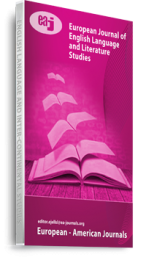The study looks at how specific words in the Nigerian Newspapers Punch and Blueprint manifest their intended functions. The goals of speakers’ remarks and the actions they use them to accomplish are ascertained through speech act analysis. Thus, the study looks at the predominant speech actions that editors utilize while writing editorials and how they interpret the statements. The information was obtained from editorials in the Punch and Blueprint newspapers. The statements collected are the topic sentences of the first five paragraphs in each of the editorials. The data are analyzed using Speech Act Theory of Searle (1969) to reveal the preponderant acts performed by the editors in writing the editorials for meaning-making, with particular reference to illocutionary act classifications which are representatives, directives, commissives, expressive and declaratives. The findings reveal that there are 6 representative acts constituting 60%. The dominance of representative act shows that the major functions of the news editors is to inform the readers. Equally evident, the editors skillfully employed two directive acts—20% of the total—to construct meaning in the editorials by requesting that Nigerian leaders fulfill specific obligations. Additionally, the editors employed two expressive acts—20% of the total—to convey their opinions regarding the issues raised by the data. However, it is equally revealed that both commissive and declarative acts are not used in the data elicited. There is no declarative act in the data collected because declarative act is only used to present verdicts made on certain issues. The insignificant use of commissive acts shows that editors do not rely on commissive acts in writing editorials. The study, therefore, contributes to the increasing works in the field of pragmatics by revealing the peculiarity and usage of speech act theory in analyzing the editorials in the selected Nigerian newspapers.
Keywords: Editorials, Newspaper, Speech Act, blueprint, punch

